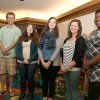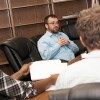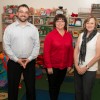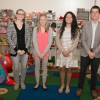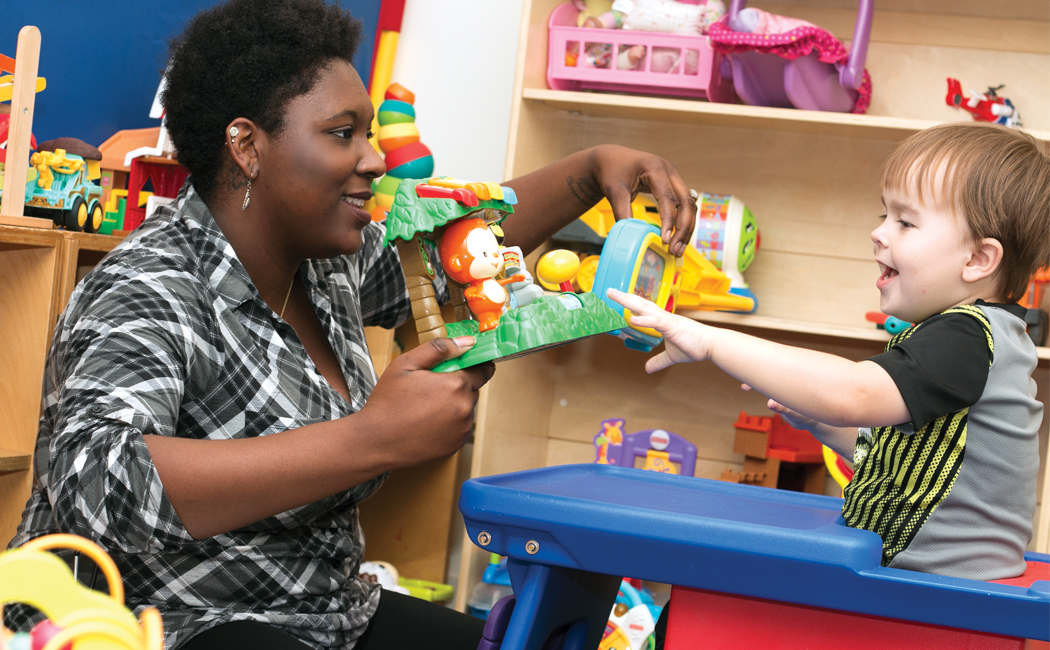
Micheale Marcus puts her hands in the air. Then on her nose. Then on the table—a miniature one, where she sits with her client: a 3-year-old toddler who mimics her every move.
Marcus, a second-year graduate student, is receiving training in early childhood autism spectrum disorders through a new traineeship offered in the College of Education and Human Sciences’ school psychology graduate program.
(Our clients) are learning skills that they’ll use for the rest of their lives.
Micheale Marcus, graduate student in school psychology
Funded by a $1.25 million grant from the U.S. Department of Education, students in the two-year program are learning to diagnose autism in young children—ages 18 months to four years—and implement early intervention services. They are also learning how to help families transition to school-based services.
The program is led by CYFS research associate professor Gina Kunz; Terri Mathews, associate professor at the University of Nebraska Medical Center’s Munroe Meyer Institute; and project manager William Higgins, UNMC assistant professor.
“There is a need to identify autism spectrum disorders and provide services to children as early as possible,” said Kunz. “School psychologists are in the best role to facilitate that process and tie it into families and school educators, so that these students with ASD can enter formal school settings as well equipped and prepared as possible.”
Training includes monthly seminars, research experience and hands-on experience at UNMC’s Autism Care for Toddlers Clinic, which provides services for young children with autism and their families.
At the clinic, students learn to use practices such as descriptive play: peppering children with words to encourage them to talk and interact. They also learn how to teach those skills to parents, who can then implement them at home.
“One of the best parts of working in the clinic is watching the kids progress,” Marcus said. “They are learning skills that they’ll use for the rest of their lives.”
Faculty will be recruiting students for the traineeship on an ongoing basis. For more information, visit the College of Education and Human Sciences’ school psychology website or contact William Higgins at whiggins@unmc.edu.
